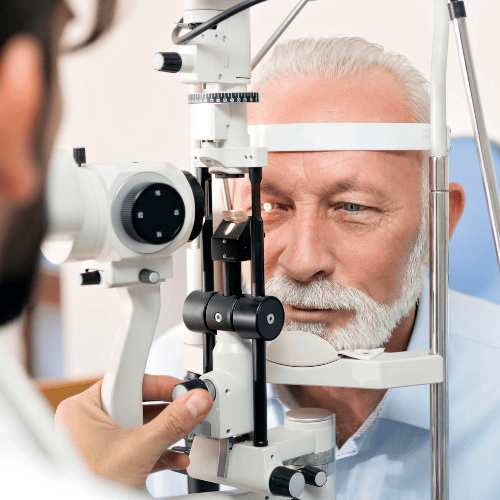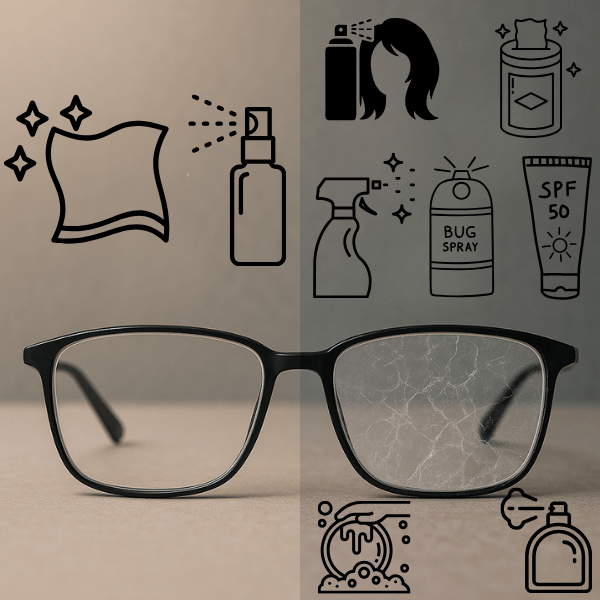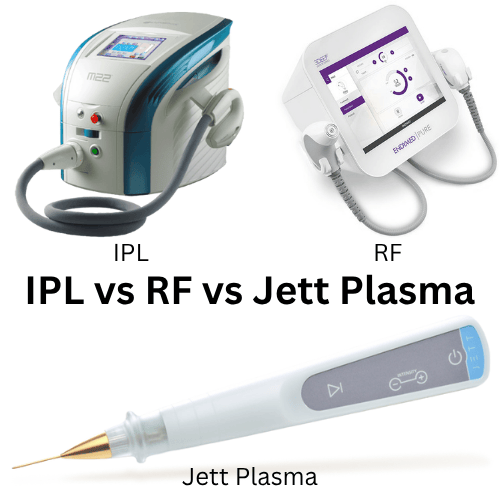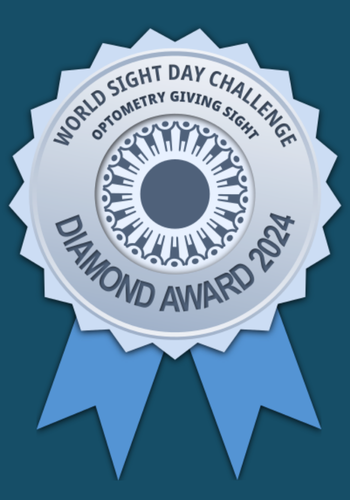EYE EXAM TECHNOLOGY – IT’S NOT “ALL ABOUT THE OCT”
At MVO, we believe that knowledge is key to maintaining your eye health. During your comprehensive eye exam, we perform a variety of tests that may seem complex but are essential for ensuring that your eyes are healthy and your vision is optimal. In this article, we will explain the importance of the advanced technology used at MVO during your eye exam and how it contributes to your overall eye care.
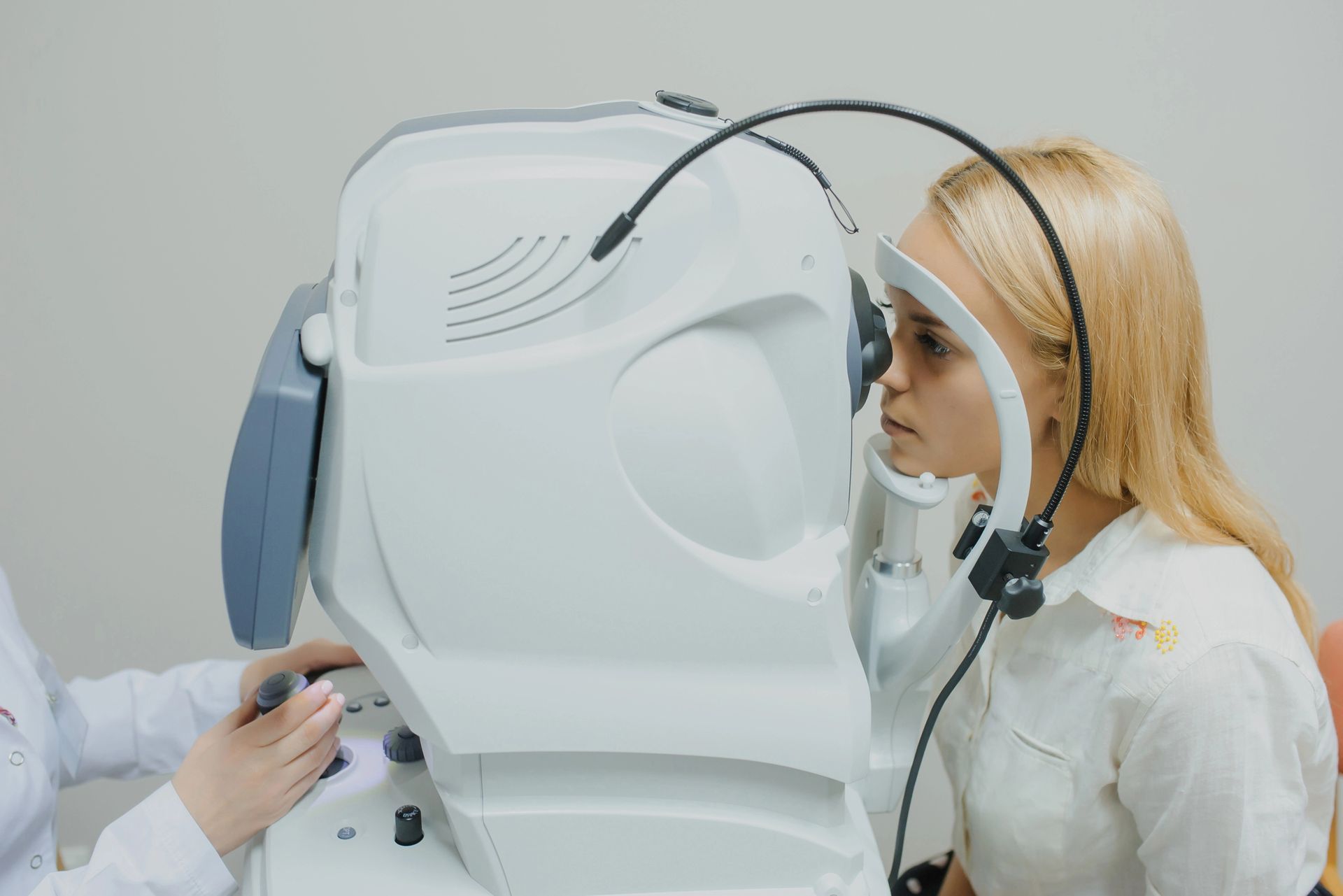
One of the tests we perform during our eye exams is
Optical Coherence Tomography (OCT). This non-invasive imaging test allows us to capture detailed cross-sectional images of the retina. By analyzing these images, we can detect early signs of eye diseases such as glaucoma, diabetic retinopathy, and macular degeneration. Early detection is crucial for effective treatment and preserving your vision. While the OCT has been heavily promoted in commercials recently, it’s only one of many different types of tests that are performed to obtain a complete picture of your eye health.
Next, we perform
auto-refraction, which uses a device to measure how light is focused by your eyes. This automated process provides a quick assessment of your refractive error, helping us to determine if you need glasses or contact lenses. While auto-refraction is a helpful starting point, we also conduct
subjective refraction, where we ask for your input on your vision with different lens options. This personalized approach ensures that we find the most accurate prescription for your unique vision needs.
Tonometry is another important test that measures the pressure inside your eyes. Elevated intraocular pressure is a significant risk factor for glaucoma, a condition that can lead to vision loss if left untreated. By regularly measuring your eye pressure, we can monitor for any changes and take action if necessary. Good news – we have done away with the “air puff” test at MVO. We now use a more advanced, accurate, device called the “iCare tonometer” that our patients have told us is a far better experience!
Wavefront aberrometry is a sophisticated test that evaluates how light waves travel through your eye. This technology helps us identify and quantify optical imperfections, allowing us to customize your vision correction. This can lead to sharper acuity, reduced glare, improved night-time perception – simply better overall vision. Wavefront testing is not commonly performed at many optometry offices. At MVO, we feel it’s essential to ensure you achieve your best vision potential.
Corneal topography is a mapping technique that provides detailed information about the curvature of your cornea. This test is particularly important for patients who wear contact lenses or those undergoing laser corrective surgery. It helps us understand the shape and health of your cornea, ensuring that any vision correction is tailored to your needs. We perform corneal topography for all adult comprehensive eye exams, and for children under 18 who wear contact lenses.
Finally,
Wide-field Imaging allows us to capture a comprehensive view of the retina and surrounding structures. This advanced imaging technique is invaluable for detecting and monitoring retinal diseases and conditions. With wide-field imaging, we can observe the health of your retina in greater detail, providing us with the information needed to make informed decisions about your eye care.
In conclusion, each of these tests plays a vital role in helping us assess your eye health, diagnose potential issues early, and provide personalized treatment options. No single test is more important than another – each is important to fully understand any eye health risks or vision challenges that may exist. Our experienced optometrists are familiar with the technology we use and understand how to interpret the results properly. We encourage you to stay proactive about your eye care by scheduling regular comprehensive eye exams. Your vision is invaluable, and we are here to help you maintain it for years to come. Thank you for trusting us with your eye health and we look forward to seeing you again at your next visit.

